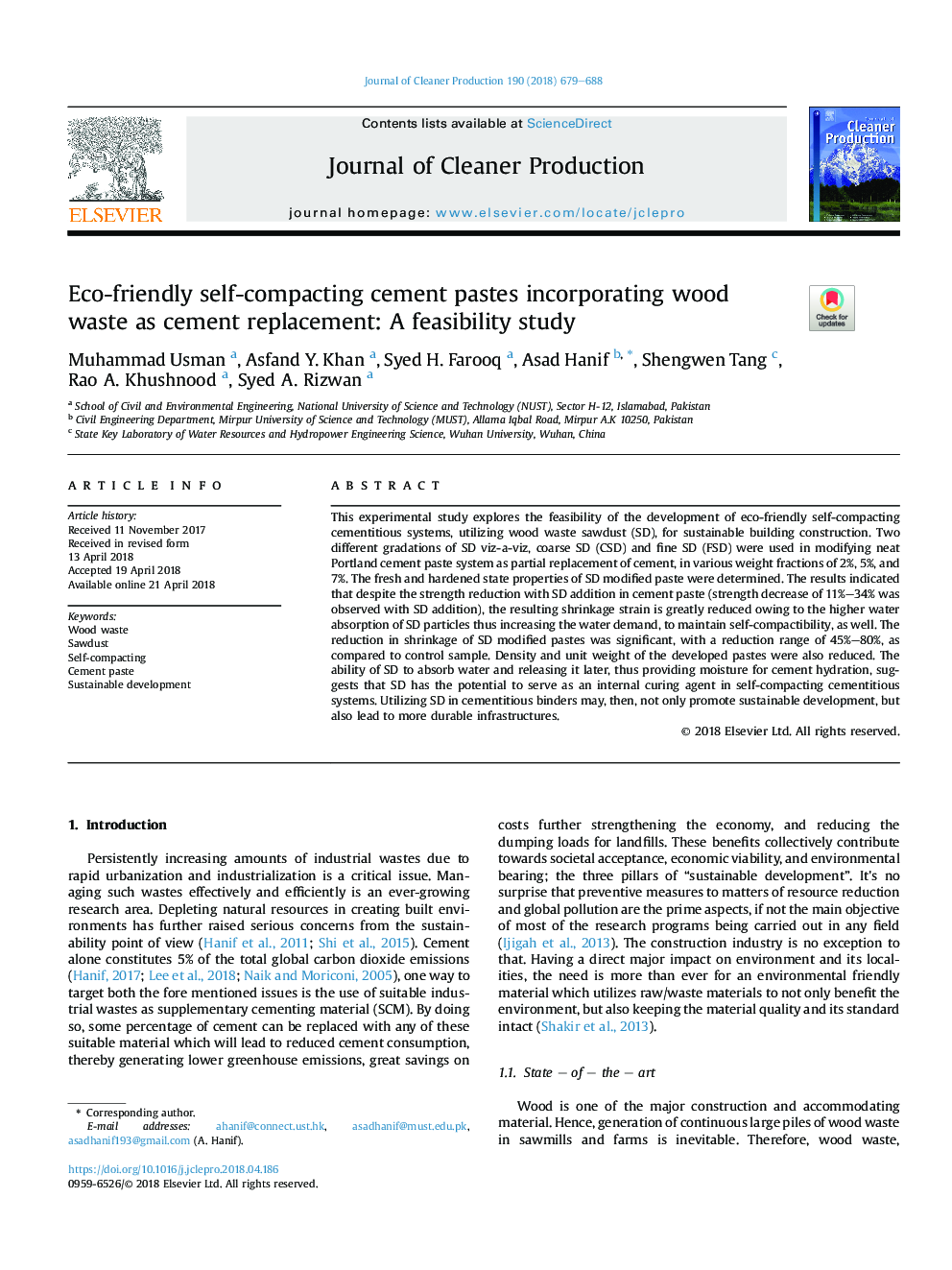| Article ID | Journal | Published Year | Pages | File Type |
|---|---|---|---|---|
| 8095016 | Journal of Cleaner Production | 2018 | 10 Pages |
Abstract
This experimental study explores the feasibility of the development of eco-friendly self-compacting cementitious systems, utilizing wood waste sawdust (SD), for sustainable building construction. Two different gradations of SD viz-a-viz, coarse SD (CSD) and fine SD (FSD) were used in modifying neat Portland cement paste system as partial replacement of cement, in various weight fractions of 2%, 5%, and 7%. The fresh and hardened state properties of SD modified paste were determined. The results indicated that despite the strength reduction with SD addition in cement paste (strength decrease of 11%-34% was observed with SD addition), the resulting shrinkage strain is greatly reduced owing to the higher water absorption of SD particles thus increasing the water demand, to maintain self-compactibility, as well. The reduction in shrinkage of SD modified pastes was significant, with a reduction range of 45%-80%, as compared to control sample. Density and unit weight of the developed pastes were also reduced. The ability of SD to absorb water and releasing it later, thus providing moisture for cement hydration, suggests that SD has the potential to serve as an internal curing agent in self-compacting cementitious systems. Utilizing SD in cementitious binders may, then, not only promote sustainable development, but also lead to more durable infrastructures.
Related Topics
Physical Sciences and Engineering
Energy
Renewable Energy, Sustainability and the Environment
Authors
Muhammad Usman, Asfand Y. Khan, Syed H. Farooq, Asad Hanif, Shengwen Tang, Rao A. Khushnood, Syed A. Rizwan,
